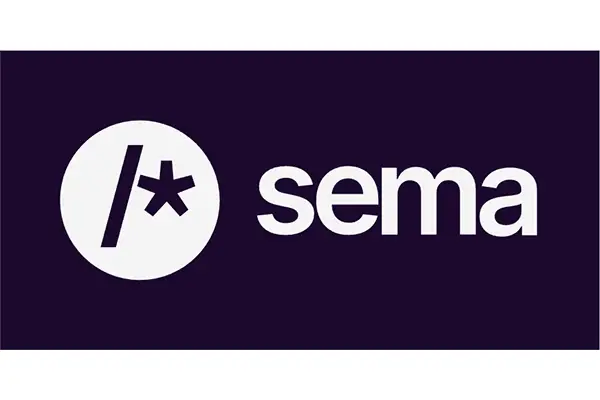How much time do you spend monthly doing bookkeeping?
Table of contents
If you are a startup founder, you are hopefully not spending too much time on your bookkeeping. It’s a non-core thing; you need to find product market fit, grow your sales, etc. Here are a few metrics you can use to estimate the time you’ll need for your startup’s bookkeeping:
- The volume of your transactions: do you have 100 transactions hitting your bank account and credit cards every month, or 11,000 transactions? The greater the number of transactions, the more time you’ll have to spend. Note that experienced accountants, like my firm, have built software that can make this much more automates, saving time.
- The complexity of your transactions: just a few complicated transactions can complicate accrual based accounting (if you are a funded startup, you ought to try to be as close to GAAP as possible, so you don’t muck up your chances of getting acquired. For example, you may have prepaid $150,000 to salesforce.com for CRM for the next year. You (or the person doing your books) will then need to reconcile that account every month against what advertising amount you’ve actually used.
- Doing the work yourself: if you can train yourself to do some of the bookkeeping, you can definitely save money. Two caveats though, 1) your time is truly better spent growing and managing your startup and 2) if you make mistakes, fixing them can be very expensive - and heaven forbid you make a mistake that the IRS will care about…
- How you’ve leveraged technology: I can’t stress this enough… using technology will greatly reduce the amount of time (aka money) you have to spend on Accounting and HR. Here are my absolute essentials: QuickBooks, Gusto, Rippling, Brex or Ramp, Bill.com, Deel.
The bottom line on bookkeeping time for startups - what you might spend and how long it might take
In sum, how much time you spend on bookkeeping depends on your unique situation. But just to give you an idea… If you are a Seed Stage DE CCorp startup based in SF, NYC, or Chicago, have 10 FTEs, ~400 transactions a month and very few accruals… I’d say ~between $500 to $750 per month.
Right at first, we suggest you DIY it using a good software (QBO) - it might take a couple of hours a month, plus a few hours to actually set it up. Pre-seed with a handful of transactions and automated payroll maybe two to five hours per month. It will scale up from there - so set up a good system, or even better, if you don’t want to spend long on your bookkeeping, hire a professional like Kruze Consulting.
Bookkeeping time management tips for startups
Effective time management can significantly reduce the hours spent on bookkeeping:
- Set up a consistent schedule: Allocate specific times for bookkeeping tasks to avoid last-minute rushes
- Use cloud-based software: Enables real-time updates and collaboration, saving 2-3 hours per week - you really need to use a cloud based accounting software
- Implement a digital receipt system: Can save 1-2 hours per week on data entry and organization
- Conduct weekly mini-reconciliations: Reduces month-end reconciliation time by 40-50%
- Automate recurring transactions: Can save 1-2 hours per month on manual entry
- Use automated payroll: Vendors like Gusto and Rippling can save hours per month, especially since their data can flow directly into your accounting software
The hidden costs of DIY bookkeeping
DIY bookkeeping can take longer and come with several hidden costs. Here are some key points to consider:
- Time Consumption: Bookkeeping is a specialized skill that requires attention to detail and a deep understanding of accounting principles. Founders may be able to do it with some training or Youtube accounting videos - but is it worth the time?Founders’ time could be better spent on core business functions like product development and marketing.
- Procrastination: Founders who procrastinate on bookkeeping may rush the process, leading to avoidable mistakes. This can be particularly harmful when timely financial reports are needed for board meetings or investor presentations/diligence.
- Errors in Financial Statements: Common mistakes such as booking equity investments inappropriately or using cash-based accounting instead of accrual-based accounting can lead to inaccurate financial statements. These errors can be costly, especially if they result in overpaying taxes or losing investor confidence. Error correction can take several times longer than actually getting it done right - one or two hours a month.
- Software Limitations: Using inadequate software like Excel for bookkeeping can open the door for errors and create an unprofessional perception among investors. Professional bookkeeping software like QuickBooks is recommended to avoid these issues.
- Missed Integrations: Not taking advantage of payroll integrations can result in additional manual work, further consuming valuable time that could be better spent on other business activities.
- Compliance Risks: Errors in tax filing or financial reporting can lead to costly audits and penalties. And dealing with the IRS takes time!
In summary, while DIY bookkeeping might seem like a cost-saving measure initially, it can take longer and result in hidden costs that could be detrimental to your startup’s success.
You can get a feel for what it should cost using the tool on our site here.
Categories:
Startup BookkeepingTable of contents
Recent questions
Top viewed questions
- What happens if the IRS audits me and I do not have the receipt for an expense (assuming it was a legitimate expense)?
- How should convertible note financing be handled on the balance sheet?
- How do startups account for equity and fundraising on the Balance Sheet?
- For startups incorporating in Delaware, what firms are good registered agents to use?
- 2025 Founder Salaries by Stage













